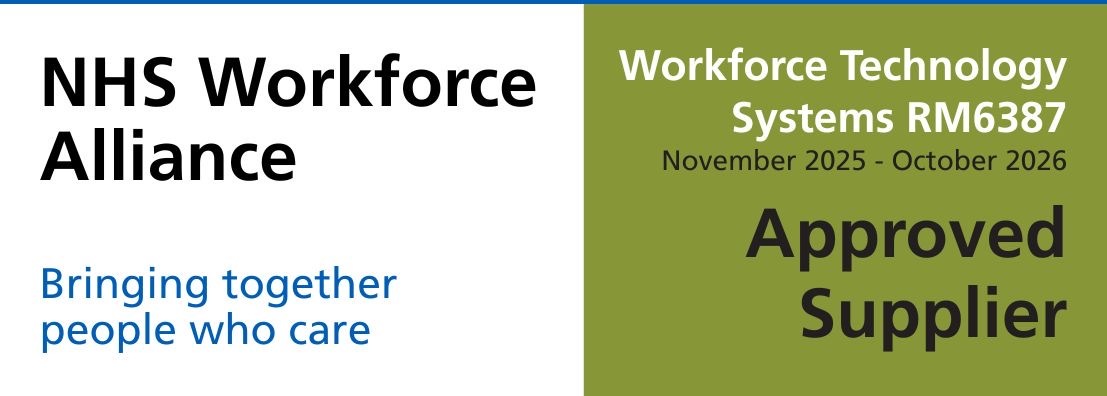
Blog by Flexzo
How Rising Agency Spend Is Affecting NHS Trusts
The NHS has always operated under budget constraints, but recent years have seen a troubling trend that’s putting additional strain on already stretched resources. Agency spend – the money paid to temporary staffing agencies to fill workforce gaps – has been climbing steadily, creating significant challenges for NHS Trusts across the UK.
The Growing Problem of Agency Costs
NHS Trusts are spending millions each year on temporary staff through recruitment agencies. These costs often come with premium rates far above standard pay scales, with agencies taking substantial cuts from both the NHS and the healthcare professionals they place.
Recent data shows that many Trusts are spending upwards of 15% of their staffing budgets on agency workers. This isn’t just a financial issue – it represents resources being diverted away from patient care, equipment upgrades, and other critical needs.
The NHS in England alone spends billions annually on agency staff. Despite numerous attempts to cap this spending, many Trusts continue to exceed their allocated budgets due to critical staffing shortages that must be addressed to maintain safe patient care.
Different departments feel this pinch more severely than others. Emergency medicine, intensive care, and specialized nursing roles typically see the highest agency costs. Rural hospitals and less desirable locations often face even higher premiums as agencies charge more to fill these harder-to-staff positions.
Why NHS Trusts Rely on Agencies
Several factors have created this growing dependency on agency staff:
Nationwide Staffing Shortages
The UK simply doesn’t have enough healthcare professionals to fill all permanent positions. The Royal College of Nursing has highlighted a shortage of tens of thousands of nurses, while medical specialties like radiology, psychiatry, and emergency medicine face similar gaps.
Training pipelines haven’t kept pace with retirement rates and increasing demand. This fundamental shortage means Trusts often have no choice but to turn to temporary solutions to maintain service levels.
Retention Challenges
The NHS struggles not just with recruiting but keeping permanent staff. Healthcare professionals increasingly cite high workloads, limited flexibility, and burnout as reasons for leaving permanent positions.
Many shift to agency work precisely because it offers better pay rates and greater control over schedules. This creates a vicious cycle – as more staff leave permanent roles for agency work, Trusts become more dependent on agencies, further draining budgets.
Immediate Service Demands
Patient care cannot wait for long-term recruitment solutions. When a ward is understaffed or an operating theatre lacks essential personnel, Trusts have little choice but to pay premium rates to fill these positions immediately. The alternative – closing services or compromising care – is simply not acceptable.
Regulatory Requirements
Strict staffing ratios and safety standards mean Trusts cannot operate below certain staffing thresholds. Regulatory bodies hold Trusts accountable for maintaining these standards, even when permanent recruitment proves difficult.
The Hidden Costs Beyond the Budget
The impact of high agency spend goes beyond the obvious financial strain. NHS Trusts also face:
Administrative Burden
Managing relationships with multiple staffing agencies creates significant administrative overhead. HR departments spend countless hours negotiating rates, verifying credentials, and coordinating placements instead of focusing on strategic workforce development.
Inconsistent Quality Control
While many agency staff are excellent professionals, the rapid placement process sometimes means less rigorous vetting. Trusts often must verify credentials and ensure compliance standards themselves, duplicating efforts and creating potential safety risks.
Team Cohesion Issues
A revolving door of temporary staff, no matter how qualified individually, lacks the institutional knowledge and team familiarity that comes with a stable workforce. This affects everything from communication efficiency to understanding of local protocols.
Staff Morale Problems
Permanent staff often work alongside agency counterparts who earn significantly more for the same work. This disparity can damage morale and create tension within healthcare teams.
Financial Planning Difficulties
Agency costs can fluctuate dramatically based on market demands, making financial planning extraordinarily difficult for NHS finance teams. This unpredictability complicates long-term investment in facilities, equipment, and service development.
The Collaborative Staff Bank Approach
The NHS needs alternatives that address both immediate staffing needs and long-term financial sustainability. Some Trusts have begun exploring innovative approaches that cut out traditional agency middlemen while still accessing qualified healthcare professionals.
One promising development is the emergence of collaborative staff banks that use technology to directly connect NHS Trusts with available healthcare professionals. These platforms eliminate agency fees while streamlining the process of finding qualified staff who can fill shifts.
Flexzo Ai
Among the solutions addressing these challenges is Flexzo Ai, a collaborative staff bank. The platform connects NHS Trusts directly with healthcare professionals through an AI-powered matching system, eliminating traditional agency fees while streamlining compliance management.
This approach tackles several key issues simultaneously: reducing costs while actually improving pay for healthcare workers, centralising compliance verification to ensure consistent standards, speeding up the matching process, and dramatically reducing administrative workload.
For healthcare professionals, the platform offers schedule control and simplified availability management without the hassle of coordinating with multiple agencies.
Beyond Cost Savings
While reducing agency spend is a clear benefit, the collaborative staff bank model offers additional advantages for the healthcare system. It helps keep professionals engaged with the NHS rather than losing them entirely to private agencies. The improved flexibility and competitive rates can attract workers who might otherwise leave healthcare altogether due to inflexible working patterns.
These models also provide valuable workforce data that can inform better long-term planning. By identifying patterns in shift coverage, geographical challenges, and specialty-specific issues, NHS Trusts can develop more targeted recruitment and retention strategies that address the root causes of staffing shortages rather than simply managing symptoms.
A Practical Step Forward
NHS Trusts looking to address rising agency costs need practical solutions that work within their existing operations. While not a complete answer to all staffing challenges, collaborative platforms represent a pragmatic step toward more sustainable staffing models. Some Trusts have already begun integrating this approach into their staffing strategy, running demonstrations to see how it might work within their specific context. The early results suggest that even partially reducing dependency on traditional agencies can lead to significant savings.
As budget pressures continue to mount, finding alternatives to traditional high-cost agency staffing will become increasingly important for NHS Trusts. The future likely belongs to solutions that harness technology to create direct connections between healthcare providers and professionals. By exploring innovative staffing approaches now, NHS Trusts can work toward breaking the cycle of rising agency costs while ensuring they maintain access to the qualified professionals needed for quality patient care.
The healthcare staffing dynamic is changing, and NHS Trusts that adapt early may find themselves better positioned to manage costs while maintaining the high standards of care the public expects and deserves.
Get in Touch
While agency staffing may always have a place in the NHS, a more sustainable model is clearly needed. One that balances cost efficiency with quality care and long-term workforce stability.
For NHS Trusts beginning to rethink their staffing strategy, platforms like Flexzo Ai offer a practical way forward. Whether you’re interested in improving shift fill rates, reducing agency spend, or streamlining compliance, Flexzo Ai’s collaborative staff bank model could support the changes you’re aiming to make.
To see how this approach could work in your Trust, feel free to connect with the Flexzo Ai team for an informal chat or a demonstration.






